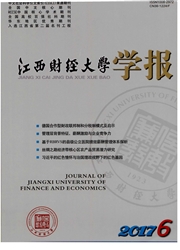

 中文摘要:
中文摘要:
选用2009-2013年沪深两市A股上市公司为样本,检验机构投资者对上市公司盈余管理行为的治理作用,并在此基础上依据新会计准则中提出的"交易性投资主体"和"控制性投资主体"的概念将机构投资者划分为交易性投资者和控制性投资者,进一步考察不同类型机构投资者对上市公司盈余管理行为的影响。研究发现:第一,机构投资者持股有助于抑制上市公司的盈余管理程度,即机构投资者能发挥积极的公司治理功能;第二,上市公司中两类机构投资者对上市公司盈余管理行为产生的影响并不相同,控制性机构投资者能发挥积极治理作用,表现为监督效应,而交易性机构投资者的影响不明显或是会推动上市公司增加盈余管理程度,表现为合谋效应。研究结果表明机构投资者持股能发挥有效的治理作用,有助于理解机构投资者在资本市场中扮演的重要角色,但需要考虑机构投资者异质性导致的不同效果,为进一步规范资本市场的治理提供了经验证据。
 英文摘要:
英文摘要:
Taking A-share listed companies in Shanghai and Shenzhen stock markets from 2009 to2013 as samples, this paper tries to examine the role of institutional investors in the governance of earnings management for listed companies. On such a basis, it divides institutional investors into trading investors and controlling investors according to the concept of trading investment subject and controlling investment subject proposed in the new Accounting Standards, so as further to investigate the impact of different types of institutional investors on the earnings management of the listed companies. The findings show that: firstly, the holdings of institutional investors can help to restrain the degree of earnings management of listed companies, which means that institutional investors can play an active role in corporate governance; secondly, the two types of institutional investors in listed companies have different influences on the earnings management of listed companies: the controlling institutional investors can play a positive role in corporate governance, which is manifested as a supervision effect, while the influence of trading institutional investors is not obvious or they will promote the listed companies to increase the degree of earnings management, which is manifested as a coordinated interaction. The results indicate that the holdings of institutional investors can play a positive role in corporate governance and help to understand the important role of institutional investors in the capital market. However, it is necessary to consider the different effects caused by the heterogeneity of the institutional investors, so as to further regulate the governance of the capital market.
 同期刊论文项目
同期刊论文项目
 同项目期刊论文
同项目期刊论文
 期刊信息
期刊信息
